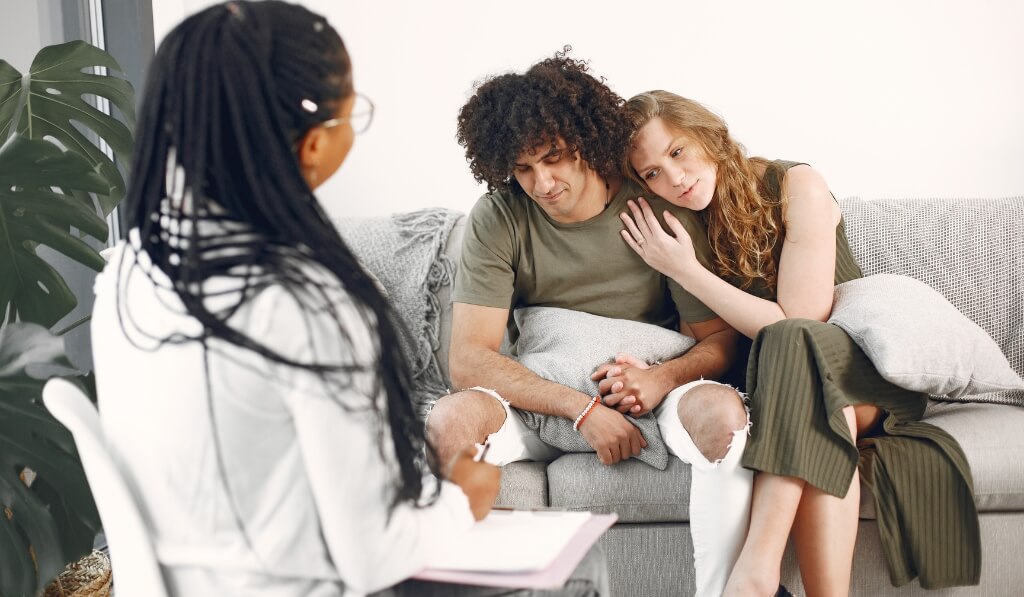Building a strong partnership takes work. It is easy to feel stuck when arguments repeat or when you feel far from your partner. Most couples want to feel close again, but many people have worries about starting therapy. Asking your partner to try couples therapy can bring up old fears, doubts, or even shame.
Maybe you have tried once before and it did not help, or you feel nervous about sharing your feelings in front of a stranger. If you want the relationship to improve but your partner hesitates, it is easy to feel alone.
The right couples therapy tips can help you invite your partner to take the first step. Your approach matters. A gentle, honest talk can open a new path for healing and better teamwork.
Understanding Why Partners May Resist Couples Therapy
Many people do not want to try couples therapy right away. This is normal. Some are afraid of being judged. Others feel that therapy means they are broken. Many grew up in homes where feelings were hidden. Sometimes the idea of therapy brings up memories of pain or failure from the past. Each person’s story affects how they see getting help.
Personal fears matter. Old family rules matter too. If you want to help your partner say yes to couples therapy, you need to listen to these worries.
Common Misconceptions and Fears About Therapy
People often think only “bad” couples go to therapy. This is not true. Many happy couples check in with a counselor during hard seasons. Therapy does not mean one person is to blame. It should be a safe place for both people to speak.
Another fear is that therapy will only bring up old fights. Some think the therapist will “take sides” or force them to share private things. Others worry that nothing will change, so why try? These thoughts can keep someone from even considering help.
How Generational Trauma Influences Therapy Attitudes
Generational trauma shapes how people see therapy. Maybe parents or grandparents had hard lives, but never talked about feelings. Many families teach that you should handle problems alone. Talking to a stranger about private matters may feel like a betrayal.
If you grew up in a home where no one talked about hurt, therapy may seem strange. Your partner could have learned not to trust help outside of family. These patterns are deep, but they can change. A new way of looking at support is possible, with time and care. This is why it helps to notice the role of generational trauma—those old family messages need respect, even as you hope for change.
Effective Couples Therapy Tips to Encourage Your Partner

You want your partner to join you in making things better. For this to happen, you need the right mix of kindness and clarity. Here are tips that help open the door for real talks.
Choose the Right Moment and Tone
Wait for a calm moment. Do not bring up therapy when tempers flare or someone is tired. Sit down together when you both feel steady. Use a soft voice. Say, “I want to talk about something important because I care about us.” Stay gentle and clear, not pushy.
Share Personal Motivations and Goals for Therapy
Speak about your hopes for the relationship. Instead of listing problems, try saying, “I want us to feel closer. I want us both to be happier.” You can share things you love about your partner. Make it clear that the goal is teamwork. Say you want to grow together, not blame anyone.
Highlight the Benefits Using Real Examples
Many couples come back from therapy with new ways to talk and solve problems. Try to share success stories that mean something to your partner. You might say, “My friend and her husband went to therapy, and now they fight less and laugh together more.” If you like facts, mention that couples who go to therapy have a better chance at a peaceful, happy bond than those who never get help.
Here are simple truths:
- Therapy helps couples talk calmly.
- You can learn to listen better.
- Many find more trust and new kindness.
Suggest a Trial Session or Alternative Approaches
Ask your partner to try just one or two sessions. Say, “If it feels wrong, we can stop.” Sometimes, it helps to suggest starting with online sessions, which can feel less scary. You can also invite your partner to pick the counselor so they feel involved.
Building Lasting Support for Therapy
Starting is only the first small step. Keeping up the effort takes patience and steady care. Here are more couples therapy tips to help keep things moving in the right direction.
Keep Communication Open and Non-Judgmental

Respect your partner’s feelings. If your partner needs time to think, allow it. When you talk, listen for the “why” behind the worry. Repeat what you hear, and do not interrupt. If your partner says no at first, say, “I hear you. Thank you for telling me.” Do not try to force it. Being patient matters more than winning an argument.
Explore Other Resources Together
If therapy feels too big right now, look for smaller steps. Read a book or listen to a podcast about relationships. Many couples enjoy workshops or online classes. Learning together, even in small doses, can build trust. These options can help prepare your partner for trying therapy in the future.
Quick ideas to build support:
- Read a daily tip about relationships as a team.
- Watch short videos about couples growing together.
- Join a support group online.
- Make a list of things you want to improve, big or small.
The Bottom Line
The first step to healing is often the hardest. Asking your partner to try couples therapy means facing old worries and fears head-on. Suggest just trying, not committing forever. Go slow if you need to, but keep looking for ways to connect. Small steps forward can change everything, no matter if it is a book, a podcast, or that first brave session. Stay patient and gentle. With time and care, you and your partner can open new doors to trust and closeness, even if generational trauma or other worries make the path seem hard. Keep the lines open, keep hearts soft, and take one hopeful step at a time.

